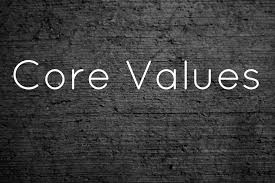I recently celebrated my birthday in Sedona – a city that straddles the county line between Coconino and Yavapai counties in the northern Verde Valley region of the U.S. state of Arizona.
Sedona’s main attraction is its array of red sandstone formations. The formations appear to glow in brilliant orange and red when illuminated by the rising or setting sun.
Start with scenery that makes your heart leap. Sedona nestles among a geological wonderland. Multi-hued stone formations jut upwards from the high desert floor creating a vivid, mesmerising setting that changes hourly with the light. When USA Weekend compiled their Most Beautiful Places in America list, no surprises that Sedona claimed the top spot.
Surrounded by 1.8 million acres of national forest land, visitors have instant access to recreational activities. Trails for hiking and biking, along with bouncy jeep tracks, weave among the bristling forest of pinnacles, spires, buttes and domes.
Sedona has inspired me for a decade, its sheer beauty, magnificence and it is a great place to reflect and expand your thinking.
(continued after this gallery)
A good friend, spoke to me this morning and discussed the quote: “Sometimes life is about risking everything for a dream no one can see, but you”. Powerful words, but exactly how many of us genuinely would risk everything for the dream?
By the way, I speak with words of wisdom on the subject, for those readers who have read my first book ‘Freedom after the Sharks’, you will know that this book was written on the basis of a non-fiction and true story, at the time this book was published and still today you will find very few authors very rarely explain the true journey of their life, I have never truly understood why people want to erase or try to forget adverse experiences, (by the way, research shows that you cannot choose to forget or erase life experiences) these are the very moments that we learn and whilst we may not understand why we are being forced in a certain direction, through these experiences we will build strength of character.
If your life choice is to leave a relationship, move to a new city or change country, leave a secure job or to set up a new business, many of us find ourselves facing big life decisions with little or no tools to help us make the best choice.
Sure, you can ask family and friends for their opinion, but often you leave those conversations more confused than when you started, you will always be the adviser with the most wisdom, your intuitive self will always have the right answer, whether you choose to listen or not.
You have a natural knowing within you that transcends logic, reason and experience and most definitely other people’s opinions. The problem is that most of us haven’t been taught how to access or trust our inner wisdom.
Because in my experience, whether I succeeded or failed was irrelevant once I was clear that the path I was taking was truly what was driving me as a person. I owned it and knew with 100% certainty that no matter what happened, I made the best decision for me, in life I have never had any regrets only life experiences that has made me the person I am today.
Whether life is telling you to be a Fighter Pilot, a Michelin chef, an Accountant or the world’s next Fin-Tech billionaire, you will need to ask yourself a few questions…..
Do you have the experience or are you prepared to retrain for your quest?
How hard are you prepared to fight for what your heart’s desire? Being truly successful means putting in the work to forge ahead. For careers that require qualifications, for the entrepreneurially minded it means rolling up your sleaves, working all hours and sacrificing the little luxuries until your idea/s begins to fly. Climbing the career ladder? Be prepared to start at the bottom and anticipate doing your fair share of tasks, tenacity, determination and nerves of steel are a prerequisite.
Have you just woken up with the big idea?
Success is born out of passion and there is no easy answer, no short cuts. It will be harder to reach than you first envisage. What are your strengths? What are the activities that make your heart dance, what drives you as a person? What profession motivates so much every day that you would never want to stop, regardless of your age and retirement?
The power of the relationship
Your friends, your colleagues, your associates and your loved ones need to support your idea/s their commitment and support is an imperative. Making things happen also means being a part of the business community, you need to introduce yourself to many people. Whether it is making contact with prospective employers, scouting for clients and collaborators, attending networking events or promoting yourself online, people need to know what you’ve got to offer if they’re going to help you succeed, and you absolutely need a mentor and confident.
Finances
The Idea/s are powerful but you need to have a roof, pay bills and food. If you are starting your own business then sooner or later you are going to going to need to generate invoices and the management of actually being paid. This can leave you in a tight position to get things up and running without a proper runway for operating and this is where many people and business ideas fail. The solutions are as varied as the challenges. You could look to friends and family, angel investors or seek loans or grants, do go to my website and download the free capital raise handbook for business development and growth, http://www.hsbusinessmanagement.com/
Maya Angelou once said:
“My mission in life is not merely to survive, but to thrive; and to do so with some passion, some compassion, some humor, and some style.”












































 – Follow Ehsan Khodarahmi on Twitter:
– Follow Ehsan Khodarahmi on Twitter: 



You must be logged in to post a comment.